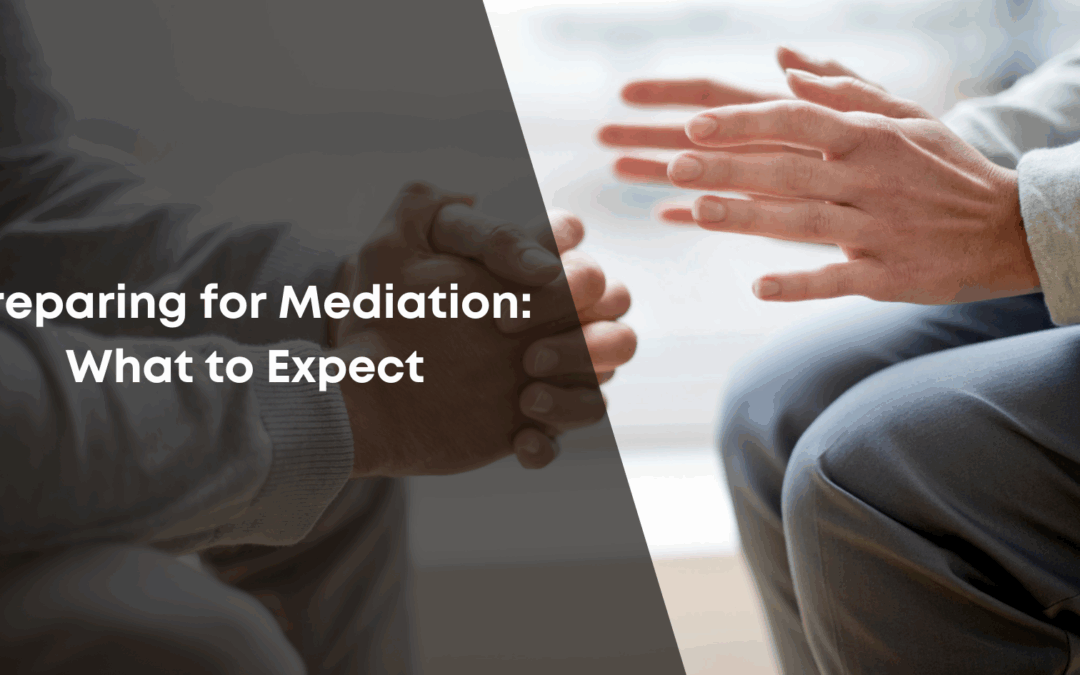You’ve finally agreed to mediation—but now what? Maybe you’re wondering what to bring, what to say, how to act. Or maybe you’re just trying to hold it together long enough to get through this next step without saying something you’ll regret. Mediation sounds better than court, but let’s be honest: you’re not sure what to expect, and uncertainty during divorce can feel like just one more punch to the gut.
The good news? You’re not alone—and it doesn’t have to stay this way.
The Real Problem: Divorce Feels Overwhelming, Unpredictable, and Deeply Unfair
Let’s be honest—preparing for mediation can feel like stepping into the unknown.
You’re not sure what to bring.
Will you need financial documents? Parenting schedules? Legal records?
You don’t know what will be asked.
Will it be confrontational? Will your spouse try to twist the truth or dominate the conversation?
And deep down, you may feel completely unprepared.
You might be angry, exhausted, or terrified that your voice won’t be heard. The idea of sitting across from someone you no longer trust and calmly “working things out” can feel impossible.
Worse yet, the whole process can feel unjust. After everything you’ve endured, now you’re expected to negotiate life-altering decisions under pressure—using rules you didn’t create. That kind of burden feels unfair.
But it doesn’t have to be this way. When approached the right way, mediation can be a powerful tool for clarity, peace, and taking back control of your future.
There’s a Better Path Forward: Empowered, Peaceful Resolution
Hi, I’m Steven Unruh, a divorce mediator with over 30 years of experience helping individuals navigate divorce with dignity and direction. I care deeply about giving people the tools they need to walk through one of life’s hardest moments with clarity—not chaos.
If you’re facing mediation, I want to help you walk in prepared. Here are five things you can do now to ensure your mediation experience is smoother, calmer, and more successful.
1. Understand the Goal of Mediation
Mediation isn’t about winners and losers. It’s about finding mutually agreeable solutions to very real problems—child custody, division of assets, support agreements—without dragging each other through court.
What to expect:
-
A neutral space led by a trained mediator
-
Conversations focused on resolution, not blame
-
A faster, more affordable path to divorce than litigation
2. Get Your Documents in Order
One of the most empowering steps you can take is to be organized. Come to mediation with your key documents ready:
-
Recent pay stubs and tax returns
-
Bank and credit card statements
-
Mortgage, loan, and retirement account information
-
Any previous legal agreements or parenting plans
This preparation gives you confidence and clarity, both of which are essential in negotiation.
3. Know What Matters Most to You
Every divorce is different. Think about your priorities:
-
What is best for the children?
-
Which assets are most important to you?
-
What are you willing to negotiate—and what are your non-negotiables?
By identifying what truly matters, you’ll be better equipped to make wise, grounded decisions rather than reactive ones.
4. Prepare Emotionally
Mediation is not just a legal process—it’s an emotional one. Give yourself time and space to process before the session. This might mean journaling, prayer, talking to a counselor, or even just getting a good night’s sleep.
You don’t need to be stoic—but you do need to be calm enough to communicate clearly.
5. Choose the Right Mediator
Not all mediators are created equal. Look for someone with experience, empathy, and a strong track record. A good mediator doesn’t just guide the process—they protect the process so you both can be heard and respected.
With more than three decades of experience, I’ve seen how the right mediator can turn a tense standoff into a structured, solution-focused conversation.
What If You’re Still Not Sure You’re Ready?
You may be thinking, “This all sounds good, but I’m still too raw… I don’t trust my ex… What if I fall apart?”
Those concerns are valid—and common. But here’s the truth: you don’t have to be 100% ready to start. You just need to take the next step, and trust the process. A skilled mediator will help keep the conversation fair, focused, and productive.
You’re not doing this alone.
Let’s Take the First Step—Together
Imagine walking into mediation with a clear head, knowing what to expect, what matters most to you, and what you need to feel supported. Imagine walking out with a real plan for your future—without the trauma of a courtroom battle.
That’s the power of preparation. That’s the power of mediation.
If you’re preparing for mediation and want guidance from someone who has helped hundreds of people just like you, I’m here.
Let’s make this as peaceful, clear, and empowering as possible.
Schedule a Free Consultation to prepare for mediation with confidence.


Recent Comments